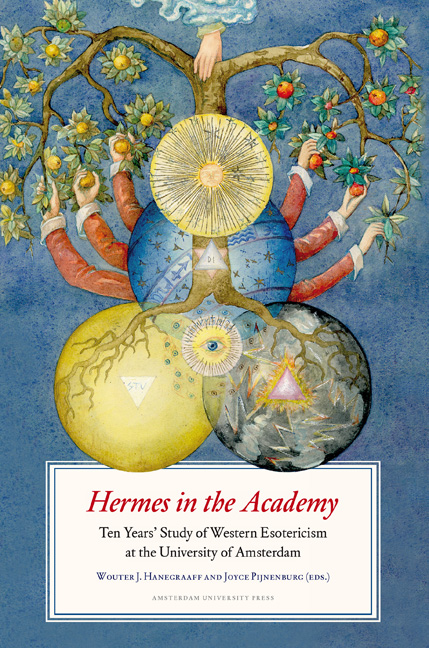Preface
Published online by Cambridge University Press: 20 January 2021
Summary
Creative innovation in the humanities is usually not a top-down but a bottomup phenomenon. It happens when individual scholars begin to ask questions that have not been asked before, and come up with new approaches that challenge the academic status quo. But, in order to be successful, not only do such new perspectives have to be recognized as fruitful by the wider academic community, they also need to become embedded in institutional contexts, which allow them to actively participate in scholarly debate and educate new generations of students. The chair group for History of Hermetic Philosophy and Related Currents (GHF) is a perfect example of such a successful combination of scholarly innovation and academic institutionalization. As documented in this anniversary volume, over the last ten years it has established itself as the leading center of a new field of international research, referred to as the study of Western esotericism.
By the end of the 1990s, that term still caused some eyebrows to be raised. It was not yet so clear to everybody that, far from being a synonym for New Age, the label “Western esotericism” covered a wide range of important and influential currents in intellectual history from the Renaissance to the present, with roots in Late Antiquity; and there were still some suspicions, here and there, that scholars of esotericism might in fact turn out to be closet esotericists… But as the high quality of research in this domain became evident, such doubts quickly began to vanish. GHF has been consistent in setting standards of excellence through the many publications of its staff members, with the two-volume Dictionary of Gnosis and Western Esotericism (Brill, 2005) as a highlight that deserves to be mentioned here in particular. As documented in this anniversary volume, the study of Western esotericism has succeeded in becoming a normal presence on the international academic scene, with professional research organizations, peer-reviewed journals and monograph series, many conferences and, of course, teaching programs. The field is generating great enthusiasm and commitment not only among established scholars, but also among students and burgeoning academics, many of whom have received their education in this field at GHF and are now pursuing Ph.D. projects both in Amsterdam and at other universities worldwide.
- Type
- Chapter
- Information
- Hermes in the Academy , pp. 7 - 8Publisher: Amsterdam University PressPrint publication year: 2009



